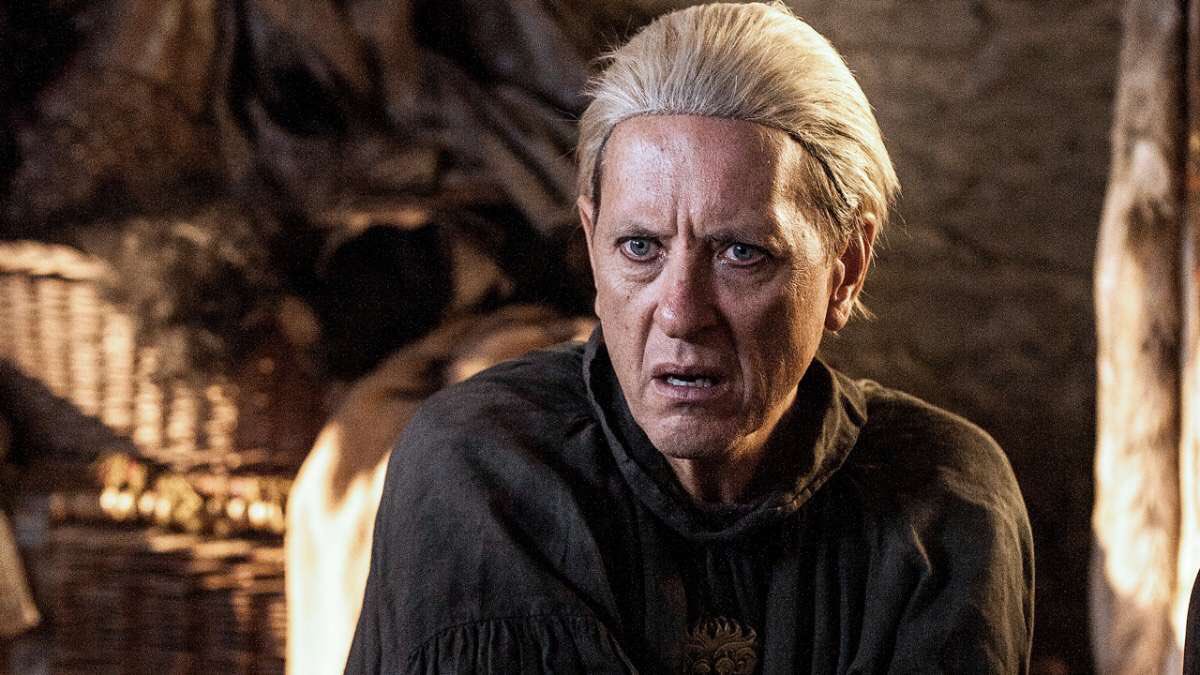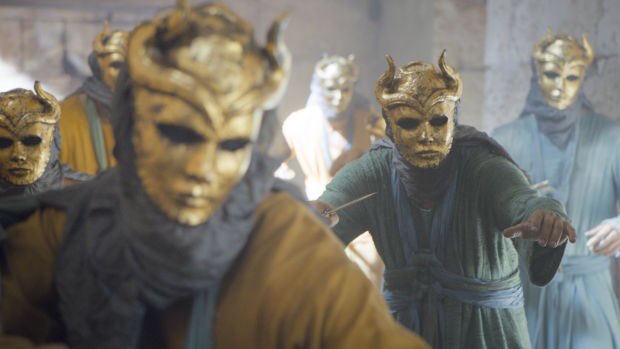Not criticisms of the execution, but criticisms of the idea.
Which is something that I find myself tired of in modern discussion of pop culture.
Not fear of execution, but fear of ideas.
But just some ideas that are out of bounds. And we’re not talking about politics; we’re talking about characters.
Where fans are like, “That’s not my Luke Skywalker!” Or, “Luke Skywalker would never do that!”
Because the version of Luke on screen conflicts with the version in their imagination.
As he cooked meth, as he murdered, as he sexually assaulted his wife.
A lot of fans responded to the character. Because he was well-written and well-realised.
But the complaints are rarely “it’s a good idea, done badly”, but rather “it’s a bad idea!”
Or how many criticisms of “Batman vs. Superman” came down to the suggestion that the idea of an entitled and violent Batman was inherently “wrong”?
When fans started getting exactly what they expected.
theatlantic.com/entertainment/…
I’m talking about “even doing this thing in the first place was completely out of bounds.”
Which where a lot of this comes from. “You CAN’T kill Spock!” “You CAN’T make the Penguin a circus freak!”
Are there issues with Daenerys’ descent into destruction and devastation? Undoubtedly.
It’s rushed, it’s hypercondensed. It might flow better if the show had three more episodes, but it doesn’t.
Incidentally, I’d agree with similar criticisms of “The Last Jedi.”
What’s interesting is that this or not the tone of a lot of the criticism.
It’s not that it’s rushed or that connective tissue is missing. It’s that this development is fundamentally, morally “wrong.”
Which isn’t a bad thing, to be clear! Stories move us! They make us feel! We emotionally invest!
And this is great!
And it’s not wrong to dislike a development because of that emotional attachment. You like what you like.
I love “Doctor Who”, but there are large swathes of it that are “not for me”, and that’s fine.
This is very much where the story has been going, pretty much from the outset.
The wheel is integral to “Game of Thrones”, and this is the mirror of the Lannister/Baratheon sack of King’s Landing at the end of Robert’s Rebellion.
No matter how romantic the fantasy of conquest of Westeros by TWO foreign armies and a dragon, it was always going to end like this.
That has always been how “Game of Thrones” works, teasing fantasy and delivering horror.
Because that’s the point of it. It’s meant to upset.
Then again we live in a time experiencing the pull of authoritarianism. So maybe saying it is a good thing.
They make the power fantasy of the superhero deliberately and consciously uncomfortable in a way that few other blockbusters do.
Martin’s prose is highly subjective, allowing the reader to align themselves with the character in focus.
Television naturally has a harder time doing that, but...
Both Jon and Daenerys are kept away from Westerosi politicking and essentially placed in their own plots for a lot of the story.
Jon at the Wall. Dany in Essos.
It means their stories are largely their own, not shared with other view point characters. Their narratives are also more traditional.
Jon the chosen one. Dany the exiled queen.
Jon is the chosen one up North, but he’s a political/military liability as soon as he comes back South.
Dany is the hero of her own story in Essos, but an invader in Westeros.
But if it does, then it’s most likely a spectacular disaster. Jon is just as messed up as Dany, the show just tipped its hand with him earlier.))
Dany is the hero of her own story in Essos. Liberator, the people’s champion.
She is that, only because we don’t know or care about the people up against which she comes.
They are non-entities, narratively speaking. Easy villains.
Even she doesn’t care about Essos, despite doing objectively good things like ending slavery.
She’s easy to root for, because it’s her story exclusively.
At the time, it made a lot people - myself included - VERY uncomfortable.
But, especially in hindsight, it’s clear that this is how Daenerys sees herself. She is a white savior.
It’s very much part of her identity.
When Daenerys talks about breaking the wheel, she simply means stopping it turning away from her family.
It isn’t an accident that audiences respond to her and care for her. That’s the entire point.
She presents the comforting romantic fantasy of the strong, just, authoritarian ruler. The royalty of fantasy.
The one true ruler, robbed of their birthright and exiled. It’s one of the most common fantasy tropes.
Except when you actually think through the implications of it.
The rejection of the idea of divine right of blood in mainstream fantasy fiction is commendable, especially now.
Ideally, your audience asks why they wanted that thing in the first place. However, very often, they wonder why they can’t have it.
I’m not entirely sure I buy that. Many of the male heroes are similarly blinded/undone by intense emotional responses.
Robb loses the War of the Five Kings because he listens to his heart rather than his head, which arguably leads to countless suffering for Westeros.
And his decision to follow his heart prolongs the chaos and carnage of war.
And people are slaves to emotion and mood. And unchecked, these emotions can have catastrophic consequences when tied to the fate of a nation.
But Sansa and (arguably) Arya. Sansa is very much vindicated here.
I’ll be the first to concede that the late-stage development is a little rushed and that it could have been fleshed out more.
The execution is clumsy, undoubtedly. But the idea is sound. And always has been.
I’ve been caught out a few times by “Game of Thrones.” Once or twice, I’ve wanted a character to “win.”
But that’s the trick. The point is to realise that the game has no winner, and that the board as it stands needs to be flipped.
I’m hesitant to kick that hornet’s nest again, but...
“Do we have a plan?”
”I will crucify the Masters. I will set their fleets afire, kill every last one of their soldiers, and return their cities to the dirt. That is my plan.”
Familiar?
There's a lot of great "Game of Thrones" coverage out there, but I really enjoy @drfarls analysis of the combat in the show.
The tactics, and the internal logic driving these sequences.
slate.com/culture/2019/0…
"Everyday people become subject to the workings of leaderly minds and hearts and spleens. The world and its inhabitants get shaped by the fickle emotions of the powerful."
theatlantic.com/entertainment/…
"The problem is not that Daenerys is a mad queen; there is no such thing. It’s a redundant phrase. To be a king or queen is to win the game, and to win the game, everyone else has to lose, and die."
lareviewofbooks.org/article/game-o…
“No one owes you the story you wanted – even if far more people resent having their expectations overturned than would ever admit to it.”
newstatesman.com/culture/tv-rad…
“While Daenerys’s brutality is unusual for heroes of fantasy sagas when they reach the high point of their story, brutality itself is the rule among the rulers of Westeros, rather than the exception.”
vulture.com/2019/05/game-o…
He makes a great conceptual argument for the episode, and I think he’s right.
It’s the most important episode, even if issues with execution’d keep it off the top spot for me.
vulture.com/2016/06/game-o…












